Dead Wrong - [5]
The two shelves that held books and toys and the school photograph – three smiling faces with well-brushed hair – were the only clues that the place was inhabited by children.
How do people do that? Are they perpetually cleaning? Wiping up sticky finger marks, hoovering up crumbs and crisps, sorting toys…or do they somehow train their children to be neat, tidy, clean and careful – in other words, to behave completely unlike children. How?
I’d long since reached an uneasy truce, accepting, against all the lessons my mother had drummed into me, that a basic level of mess and grime came with the territory. Life was messy, kids were messy, there were more important things than a clean swing bin. Now and then, when I could no longer bear the jumble in the toy boxes or the layers of food particles and felt-pen marks on the doorjamb and the television, I’d have a binge. It would look OK (never pristine, I could never do pristine) for an hour or two until it got lived in again.
Somehow Debbie had got it cracked. I sat opposite her on one of a pair of winged armchairs, drew out my notebook and began my enquiry.
I established her full name, her home situation (divorced, living alone here with three children), her place of work. She was a bit like her house, neat and trim. She was dressed in a fuchsia-pink ribbed sweater and a black skirt. Her hair was dark blonde, pulled into a low bun at the nape of her neck. She wore a little make-up, a silver cross on a chain, silver studs in her ears. ‘Well turned-out’ was the phrase. She looked good but her hands trembled as she spoke and at times she became breathless and stumbled over her words.
I asked her to tell me about the man who had been following her. When had it started?
‘It was about three months ago, just after Easter. I came out of work and he was there across the road. The first couple of times I thought he was waiting to meet someone.’
‘But you noticed him, you were aware of him?’
She played with her chain. ‘He was staring at me longer than you normally do. Then he started to follow me.’
‘From work?’
She nodded. ‘He’d walk behind me, not close but in sight. Follow me to the bus stop. I…it wasn’t…I didn’t like it. One day I went to get Jason’s birthday present,’ she motioned to the photograph, ‘and he was behind me. That’s when it got to me, because I was sure he was actually doing it. There wasn’t any doubt any more.’
‘Was he there every day?’
‘No. Sometimes he’d do two days in a row and then nothing for a few days then he’d turn up again.’
‘No particular pattern?’
She thought for a moment, shook her head.
‘Do you work every day?’
‘No, I do Wednesday, Thursday and Saturdays, sometimes an extra day if one of the girls is sick or there’s stocktaking.’
‘Did you tell anyone at work about it?’
‘Yeah, they all knew. Jean, that’s the manageress, she went and had a word with him a couple of times, asked him to move on. He’d go off but, he’d be there again when I came out, or I’d see him on the way to the bus. It just went on and on.’ Her composure broke. ‘It’s awful,’ she protested, her face crumpling, ‘I keep thinking it must be me, something I’ve said or done. Why is he doing this?’
‘You don’t know him?’
‘No, I’ve no idea who he is.’
‘Does he seem at all familiar? Someone you might have met and forgotten?’
‘No, I’m pretty good with faces. I’ve never seen him, I’m sure.’
‘Has he ever spoken to you, approached you?’
‘Not then but later.’
‘Go on.’
‘About a month after it had all started, I’d had enough. It’s so…’ she paused, finding the right word, running her thumb along the chain and back. ‘It’s creepy, it becomes the most important thing, it gets in the way of everything else.’ She took a breath and exhaled slowly. ‘So, I went up to him, at the bus stop. I told him to leave me alone, to stop following me or I’d report him to the police.’
She swallowed, opened her mouth to speak but couldn’t. She ducked her head. When she did speak, it was a whisper; I strained to catch it. ‘He knew my name.’ She looked up and repeated herself, her voice breaking, high with panic. ‘He knew my name. “Debbie,” he said, that really freaked me out. How did he know my name?’ she cried out.
I waited.
“Don’t be like this,” he said, “you know how much you mean to me.”’ She blushed. ‘It was awful. “I love you,” he said. “You know that.” I couldn’t stand it. I just ran then, to the bus. The next day this letter came, pages and pages of stuff about how much I meant to him and how long he’d waited to find me, on and on.’ She shook her head in disbelief.
‘Have you got the letter?’
‘No, it made me feel dirty. I chucked it. There was no address or anything. It was posted in Manchester.’
‘Was it signed?’
‘Just the initial, G. There’ve been others since. I realised I’d better keep them, for evidence.’ She rose and crossed to a wall cupboard and pulled out a large manila envelope. From inside it she took a bundle of letters. Thick, inky script, closely written. I read two and learned nothing other than that the writer G was obsessed with Debbie, was convinced they would eventually be together and live happily ever after. The language was clichéd and sentimental. I also noticed there was no specific references in them, no mention of other people, of Debbie’s children, no places and nothing that gave any clue to the writer’s identity. It was all generalities like a badly written gift card going on for six pages at a time. The paper and envelopes were cheap – the sort sold at bargain discount outlets.
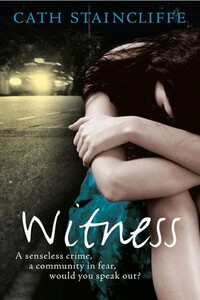
"A painfully honest exploration of an ordinary family under stress… A stunning piece of work." – Ann CleevesFour bystanders in the wrong place at the wrong time. Witnesses to the shocking shooting of a teenage boy. A moment that changes their lives forever. Fiona, a midwife, is plagued by panic attacks and unable to work. Has she the strength to testify? Mike, a delivery driver and family man, faces an impossible decision when his frightened wife forces him to choose – us or the court case. Cheryl, a single-mother, doesn't want her child to grow up in the same climate of fear.

Blue Murder: Make BelieveThe third Blue Murder novel written by the creator of the hit ITV police drama starring Caroline Quentin as DCI Janine Lewis.For nine days the people of Manchester have been looking for missing three-year-old Sammy Wray then DCI Janine Lewis is called to a residential street where a child's body has been found. It's a harrowing investigation and Janine's personal problems make leading the inquiry even tougher. Is this the case that will break her?Praise for the Blue Murder books'Complex and satisfying in its handling of Lewis's agonised attempts to be both a good cop and a good mother.'The Sunday Times'Uncluttered and finely detailed prose.'Birmingham Post'Beautifully realised little snapshots of the different characters' lives… Compelling stuff.'Sherlock Magazine'A swift, satisfying read.'City Life'Precise and detailed delineation of contemporary family relationships.'Tangled Web'Lewis seems set to become another very popular string to Staincliffe's bow as one of the leading English murder writers.'Manchester Metro'Pace and plenty of human interest.'Publishing News'Blending the warmth of family life with the demands of a police investigation.'Manchester Evening News'Juggling work and family is a challenge of modern life and encountering realistically portrayed women with family responsibilities is a pleasure.
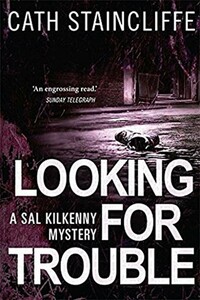
She's a single parent. A private eye. And liking it. Until, that is, Mrs Hobbs turns up asking Sal Kilkenny to find her missing son. Sal's search takes her through the Manchester underworld, a world of deprivation and petty theft, of well-heeled organised crime and ultimately, murder. Would she have taken the job on if she had known what she was getting into? Probably, because Sal is fired with the desire to see justice done, to avenge the death of a young lad whose only crime was knowing too much.The first Sal Kilkenny Mystery, short-listed for the Crime Writers' Association best first novel award and serialised on BBC Radio 4, Woman's Hour.
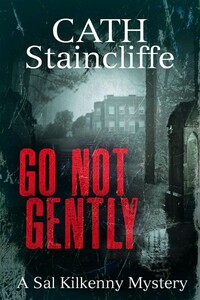
From the author of LOOKING FOR TROUBLE, a further crime novel featuring private investigator Sal Kilkenny. When a man is distraught at his wife's apparent infidelity, he enlists the help of Sal to confirm his suspicions, only to find himself a widower soon afterwards. From there Sal's other case also begins to take a disturbing and violent turn.
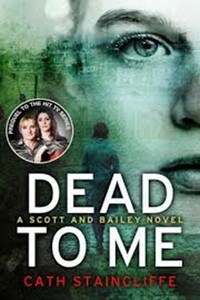
A daughter's deathA teenage girl is found brutally murdered in her squalid flat.A mother's loveHer mother is devastated. She gave her child up to the care system, only to lose her again, and is convinced that the low-life boyfriend is to blame.Two ordinary women, one extraordinary jobDC Rachel Bailey has dragged herself up from a deprived childhood and joined the Manchester Police. Rachel's boss thinks her new recruit has bags of raw talent but straight-laced DC Janet Scott, her reluctant partner, has her doubts.Together Scott and Bailey must hunt a killer, but a life fighting crime can be no life at all…
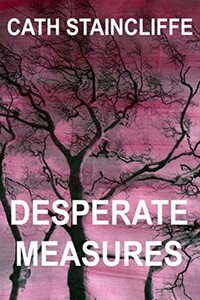
The fourth Blue Murder novel written by the creator of the hit ITV police drama starring Caroline Quentin as DCI Janine Lewis.A well-respected family GP is found shot dead outside his surgery; who could possibly want to kill him? As DCI Janine Lewis and her team investigate they uncover stories of loyalty, love, deception, betrayal and revenge.Praise for the Blue Murder books'Complex and satisfying in its handling of Lewis's agonised attempts to be both a good cop and a good mother.' The Sunday Times'Uncluttered and finely detailed prose.' Birmingham Post'Beautifully realised little snapshots of the different characters' lives… Compelling stuff.' Sherlock Magazine'A swift, satisfying read.' City Life'Precise and detailed delineation of contemporary family relationships.' Tangled Web'Lewis seems set to become another very popular string to Staincliffe's bow as one of the leading English murder writers.' Manchester Metro'Pace and plenty of human interest.' Publishing News'Blending the warmth of family life with the demands of a police investigation.'Manchester Evening News'Juggling work and family is a challenge of modern life and encountering realistically portrayed women with family responsibilities is a pleasure.

Чемодан с миллионом долларов, кучка головорезов, желающих его вернуть, и это в городишке, отрезанном от мира. Что может быть хуже? Ах, да….кровососущий монстр.От Автора:Данный рассказ является частью трилогии «Последний рубеж» и повествовал о молодости Кейн и его знакомству с Изабелл. Сюжет рассказа блуждал у меня в голове больше года, и дошел до кондиции, когда нужно перенести его на бумагу. Сама «трилогия Рубежа» будет представлена публике — когда меня устроит результат. Но, если сей рассказ будет достаточно популярен, и у читателей будет желание увидеть продолжение, то я вполне могу написать ещё одну-две истории повествующие о похождениях молодого Кейна, тем самым сформировав из них полноценный роман.Так что не стесняйтесь оставлять комментарии, тыкать носом в нелогичности.

Поздним вечером посыльный курьерской почты юный Джейс Деймон торопится доставить пакет от клиента, которого позже находят мертвым. Да и сам Джейс оказывается втянутым в криминальные сети шантажа и убийств.Под угрозой жизнь самого Джейса и его младшего брата.Конечно, можно бежать, но удастся ли скрыться?Это и предстоит узнать Джейсу Деймону.
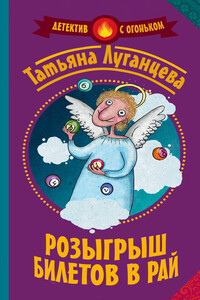
Астра Фадеева – самостоятельная женщина, ведет собственный бизнес, в одиночку воспитывает сына, а еще помогает сестрам и бывшему мужу, хоть и не стоит он того. Но как же ей хочется быть слабой, беззащитной, опереться на сильное мужское плечо! Да только вот незадача – все ее романы обязательно заканчивались крупными неприятностями, причем не столько для самой Астры, сколько для окружающих. В общем, роковая женщина!Вот и на этот раз романтическая поездка к морю в солнечную Болгарию обещала жаркие объятия и страстные поцелуи, а обернулась очередной катастрофой.

«Посмотреть в послезавтра» – остросюжетный роман-триллер Надежды Молчадской, главная изюминка которого – атмосфера таинственности и нарастающая интрига.Девушка по имени Венера впадает в кому при загадочных обстоятельствах. Спецслужбы переправляют ее из закрытого городка Нигдельск в Москву в спецклинику, где известный ученый пытается понять, что явилось причиной ее состояния. Его исследования приводят к неожиданным результатам: он обнаруживает, что их связывает тайна из его прошлого.
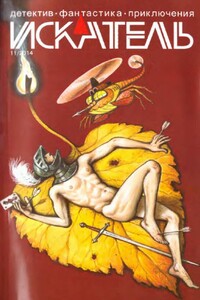
«ИСКАТЕЛЬ» — советский и российский литературный альманах. Издаётся с 1961 года. Публикует фантастические, приключенческие, детективные, военно-патриотические произведения, научно-популярные очерки и статьи. В 1961–1996 годах — литературное приложение к журналу «Вокруг света», с 1996 года — независимое издание.В 1961–1996 годах выходил шесть раз в год, в 1997–2002 годах — ежемесячно; с 2003 года выходит непериодически.Содержание:Анатолий Королев ПОЛИЦЕЙСКИЙ (повесть)Олег Быстров УКРАДИ МОЮ ЖИЗНЬ (окончание) (повесть)Владимир Лебедев ГОСТИ ИЗ НИОТКУДА.

В сборник «Последний идол» вошли произведения Александра Звягинцева разных лет и разных жанров. Они объединены общей темой исторической памяти и личной ответственности человека в схватке со злом, которое порой предстает в самых неожиданных обличиях. Публикуются рассказы из циклов о делах следователей Багринцева и Северина, прокуроров Ольгина и Шип — уже известных читателям по сборнику Звягинцева «Кто-то из вас должен умереть!» (2012). Впервые увидит свет пьеса «Последний идол», а также цикл очерков писателя о событиях вокруг значительных фигур общественной и политической жизни России XIX–XX веков — от Петра Столыпина до Солженицына, от Александра Керенского до Льва Шейнина.